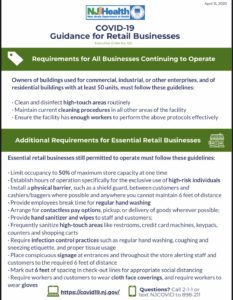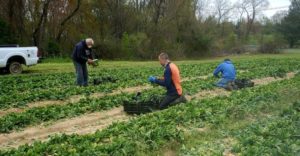The four-part On-Farm Direct Marketing webinar series recordings are now available online and linked below.
Social Distancing and Safe Food Handling Guidance for Farm Markets, Wes Kline
Sales and Distribution Strategies, Bill Bamka and Steve Komar
U-Pick Guidance for Compliance with Executive Orders, Meredith Melendez
Farmer Panel Discussion, Featuring Tracy Duffield, Jessica Neiderer, and David Specca
For more production agriculture resources on COVID-19, including printable signage for customers and farmworkers visit the Rutgers On-Farm Food Safety COVID-19 webpage.


